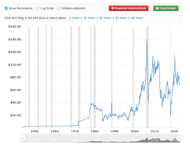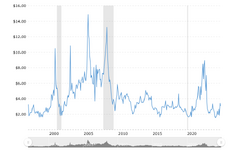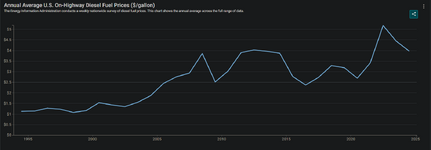I only know row crop farmers. Livestock is either dying out, due to corporate farming, or is just sort of a side business within the farm to even things out and find use from unfarmable ground, other than CRP. I don't know any ranchers, per say, at least not well enough to say what is going on with ranching.
Row crop farmers, which in the USA is mostly soybeans, wheat and corn, are getting absolutely crushed. Aside from Trump bailing them out, they will go under very soon. Putin is flooding the grain markets, knowing it will destroy our agricultural business and it is working. I talked to the guy I know best and his bank is the largest ag bank in the state. They had a giant ag-finance conference to discuss the situation. Right now, with projected input prices (fertilizer, seed, spray, fuel) and then subtract production (the grain prices expected on the market AND expected yields based on historical value) the numbers shockingly bad.
They expect farmers to lose about $54 for every acre of soybeans they plant and to lose over $100 for every acre of corn they plant. Meaning farmers are going to farm this year, with the expectation to lose money. And it has been this way for a few years. Most farmers are maxed out on credit lines and if this isn't fixed quickly, then ag will simply go under. If ag goes under, this country goes under. Trump did bail out farmers last time he was in office, so we must pray he does it again.
With inflation, soybeans should be between $14 and $16 a bushel and corn between $6 and $8. Right now they expect $9 to $11 for soybeans and $4 to $5 for corn. Farmers are getting destroyed and I don't know if anyone with any power is even aware of it.




:max_bytes(150000):strip_icc()/GettyImages-955491344-127514b935bd4ddc9506c7a0d439fba8.jpg)